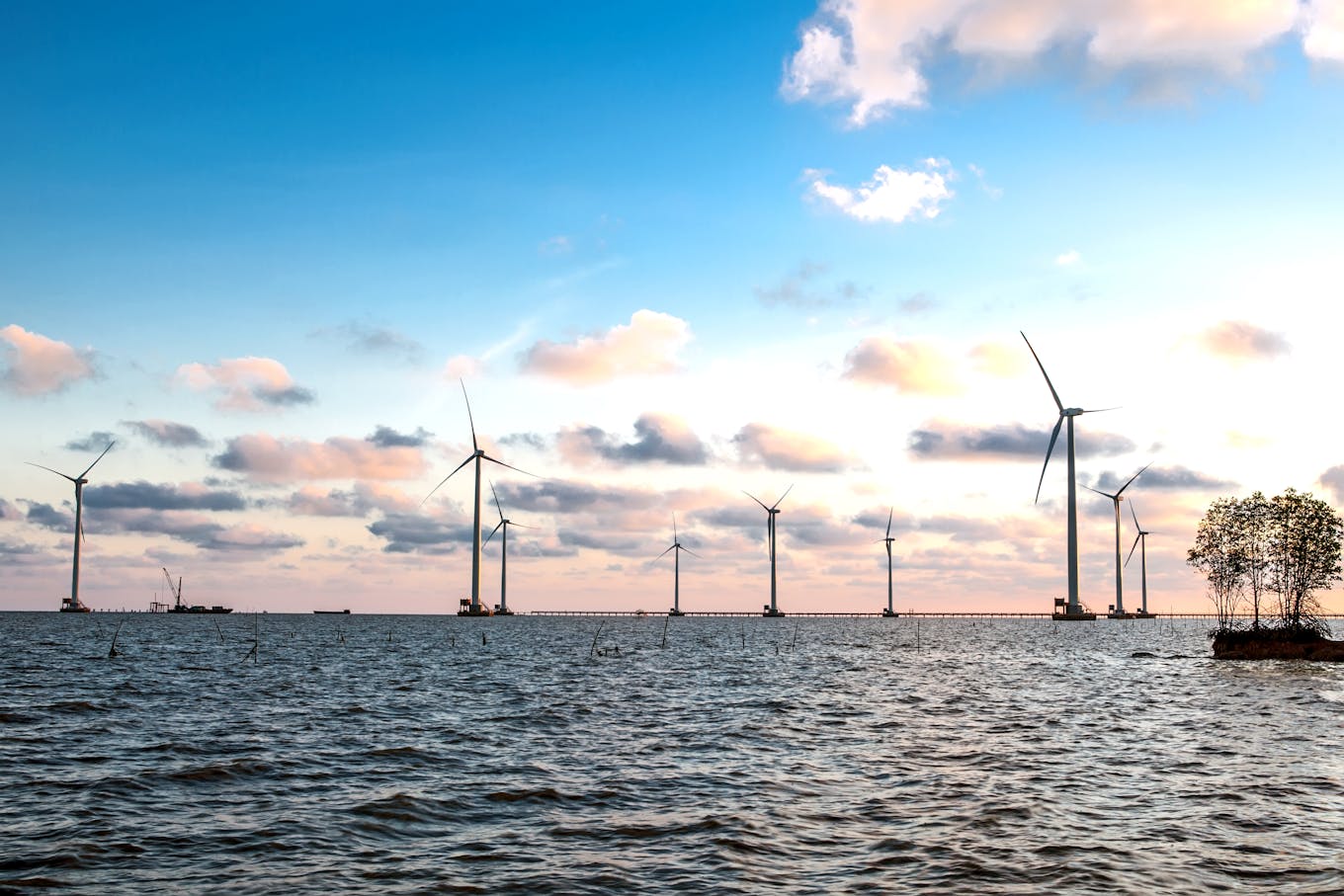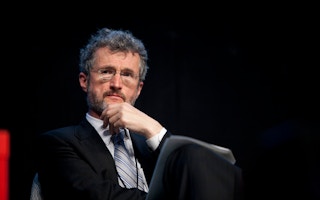Over the past year, executive director of the United Nations Global Compact (UNGC) Georg Kell watched dark clouds gather on the horizon as stories on the rise of nationalism, disease and terrorism dominated global headlines.
To continue reading, subscribe to Eco‑Business.
There's something for everyone. We offer a range of subscription plans.
- Access our stories and receive our Insights Weekly newsletter with the free EB Member plan.
- Unlock unlimited access to our content and archive with EB Circle.
- Publish your content with EB Premium.
What worries him is the erosion of public trust in central institutions, which contributes to a volatile and unpredictable global environment. This is why, Kell emphasises, the demand for ethical leadership has never been greater.
Trust between people and institutions needs to be restored, not least because markets need a stable environment to thrive. Beyond that, there is now a strong business case that financial success accompanies social responsibility, environmental stewardship, and good governance, he says.
As leader of the world’s largest voluntary corporate sustainability initiative with 8,000 corporate members in 145 countries, Kell has spent more than a decade since the founding of the UNGC in 2000 advocating responsible
business practices. Under his leadership, UNGC also launched sister initiatives on investment and business education: the Principles for Responsible Investment (PRI) and the Principles for Responsible Management Education (PRME). They are international networks of investors working together to promote and apply guidelines for responsible investment and management education.
The German bureaucrat started his career as a research fellow in engineering at the renowned Fraunhofer Institute for Production Technology and Innovation in Berlin before working as a financial analyst in various countries in Africa and Asia. He joined the UN in 1987 and has been leading the organisation’s engagement with corporates worldwide ever since.
As we look back on the year, what do you think were the biggest headlines that had a significant impact on business and sustainability?
“
There are indeed dark clouds gathering: populism, nationalism and extremism seem to be on the rise…Markets can only deliver in a stable and secure environment. Consequently, demand for ethical leadership and value based transactions are in greater demand than ever to restore trust and to infuse hope and good will to work towards a better future.
Georg Kell, executive director, United Nations Global Compact
Three developments stand out: firstly, political turmoil and the continued erosion of public trust in central institutions. There are indeed dark clouds gathering: populism, nationalism and extremism seem to be on the rise. This should concern everybody. Markets can only deliver in a stable and secure environment. Consequently, demand for ethical leadership and value based transactions are in greater demand than ever to restore trust and to infuse hope and good will to work towards a better future.
Secondly, the evidence on man-made global warming is now so overwhelming that markets and policy makers finally seem to be paying attention. At the UN Climate Summit in September, investors took a stand for the first time by committing to evaluate the carbon exposure of investment portfolios and reporting on it by the end of 2015 in Paris.
Businesses are also getting serious by aligning their government affairs with their sustainability goals. All too often, companies make laudable sustainability commitments but at the same time lobby governments not to take action on climate. It is key that companies ensure that their government advocacy is consistent with their sustainability strategy. These are promising steps, and the recent climate commitments by United States and China is an encouraging omen that progress is within reach.
Thirdly, the business case for corporate sustainability is getting stronger. Evidence now shows that long-term financial success goes hand in hand with social responsibility, environmental stewardship and good governance. This is extremely encouraging. Clearly three mega trends are now playing out: the rise of transparency, the realisation that social dilemmas are a growth barrier, and that it makes sense to find solutions to overcome these issues and resource constraints.
A related development is that more companies are now willing to collaborate to tackle dilemmas. The willingness to collaborate on issues such as women empowerment, anti-corruption and green growth has clearly seen a remarkable increase.
What do you think are the key themes that will dominate the corporate agenda as we go into 2015?
No doubt, building greater flexibility is key in light of increasing uncertainty in the global business landscape. This requires more investment in social and environmental assets in local communities to enhance resilience and
to build trust.
To make this happen, corporate boards have to be involved in elevating environmental, social and governance (ESG) issues, as these are increasingly shaping risk and opportunity portfolios. A clear assessment of what is material to a company is more important than ever.
A related challenge is to better leverage social and environmental investments to mitigate risks and to seize new opportunities. In many instances this will require the exploration of enhanced partnerships since no company alone can handle many of the challenges we are now facing. Finding the best pathways that will have the greatest impact will require a new way of collaborating with peers, competitors, civil society and public institutions.
What is your outlook on the progress of sustainable development specifically in Asia?
We are extremely pleased that country-level activities are gaining strength and that more Asian companies, when investing in other regions of the world, are engaging in collaborative efforts to ensure greater social and environmental harmony.
What are your hopes for the coming year as we approach the December deadline for a global agreement on climate change in Paris?

A wind farm in Vietnam. Many countries are moving to price carbon, a move which will spur investments in cleaner forms of energy. Image: Shutterstock.com
Progress on pricing carbon is arguably one of the most important benchmarks towards a climate deal. Economists, policy makers and corporations as well as citizens will hopefully realize that not pricing carbon is a huge market distortion that holds back green investments.
This perversion of markets must end and there are good movements underway that suggest it is within reach in 2015. Already many jurisdictions are moving ahead with carbon pricing to send the right market signals on a massive scale. This happens at city, state and national levels.
What will you and your organisation be working on this year?
We have two big goals: introducing a new framework for business to align itself better with the UN’s forthcoming Sustainable Development Goals (SDGs). We will introduce this framework on 25 June 2015 at UN Headquarters when the Global Compact turns 15. We hope that this framework will unleash unprecedented collaboration on social and development issues covering diverse areas such as women’s empowerment, water stewardship, anti-corruption, education and sustainable agriculture.
The second goal is to grow the Caring for Climate platform into a transformative force by way of encouraging government officials to agree on a global framework on climate change in Paris 2015.
We will also bring to scale the Global Compact Board Programme and work with our sister initiatives, Principles for Responsible Investment (PRI) and Principles for Responsible Management Education (PRME), to ensure that responsible and sustainable business practices are the winning ones.
And finally, we will do everything possible to support our more than 80 local networks around the world, which are increasingly gaining strength and embedding universal sustainability principles in specific contexts.
This interview is part of the “15 on 15” series by Eco-Business where we interview 15 global and Asian leaders on their thoughts on the year ahead. Read all the interviews in the latest issue of the Eco-Business magazine here.














